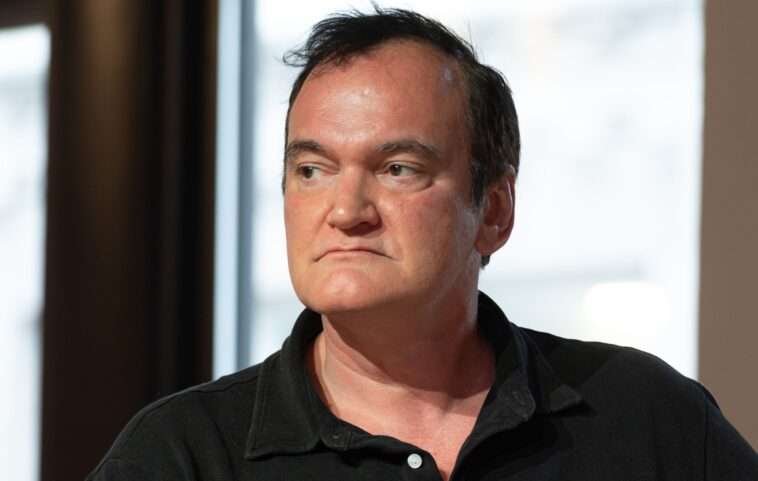With a career spanning over three decades, Quentin Tarantino has established himself as one of the most influential and iconic filmmakers of our time. Known for his unique storytelling, audacious style, and a liking for both homage and subversion of genre conventions, Tarantino has left an indelible mark on cinema. In this article, we delve into the life, net worth, and some of the best works of this cinematic maestro.
The Early Years
Born on March 27, 1963, in Knoxville, Tennessee, Quentin Jerome Tarantino had an early fascination with films. Raised by his mother, Connie McHugh, and his stepfather, Curtis Zastoupil, he discovered his passion for movies at a young age. His frequent trips to the cinema and his obsession with television series like “The Twilight Zone” set the stage for his future career.
At the age of 22, Tarantino left his job as a video store clerk to pursue his dream of becoming a filmmaker. He scraped together $5,000 and wrote a script for “Reservoir Dogs,” which would later become his directorial debut in 1992.
The Best of Quentin Tarantino
Pulp Fiction (1994)
“Pulp Fiction” is often regarded as Quentin Tarantino’s magnum opus. Released in 1994, this neo-noir black comedy crime film is known for its non-linear narrative, sharp dialogue, and unforgettable characters. Starring John Travolta, Samuel L. Jackson, Uma Thurman, and Bruce Willis, the film weaves multiple interconnected stories, creating a narrative tapestry that remains a cinematic marvel. It earned Tarantino an Academy Award for Best Original Screenplay and catapulted him to international stardom.
Kill Bill: Volume 1 (2003) and Volume 2 (2004)
“Kill Bill” is Quentin Tarantino’s homage to martial arts and revenge films. Split into two volumes, the story follows The Bride (played by Uma Thurman), a former assassin seeking vengeance against her former colleagues. The films are a symphony of violence, striking visuals, and Tarantino’s signature dialogue. They showcase his love for genre cinema and his ability to subvert expectations while paying tribute to classic tropes.
Django Unchained (2012)
“Django Unchained” is a bold exploration of slavery in the American South. Starring Jamie Foxx as Django, a freed slave turned bounty hunter, and Christoph Waltz as Dr. King Schultz, a German dentist turned bounty hunter, the film combines elements of the spaghetti western with social commentary. Tarantino’s unflinching approach to violence and racism earned him accolades, including two Academy Awards for Best Original Screenplay and Best Supporting Actor (Christoph Waltz).
Inglourious Basterds (2009)
Set in Nazi-occupied France during World War II, “Inglourious Basterds” is a revenge fantasy that subverts historical events. Led by Lt. Aldo Raine (Brad Pitt), a group of Jewish-American soldiers seeks to assassinate Nazi leaders. The film is characterized by Tarantino’s trademark sharp dialogue and tense, suspenseful scenes. Christoph Waltz’s portrayal of Colonel Hans Landa earned him an Academy Award for Best Supporting Actor.
Reservoir Dogs (1992)
Tarantino’s directorial debut, “Reservoir Dogs,” is a masterclass in suspense and character-driven storytelling. The film follows a group of criminals as they deal with the aftermath of a botched heist. Known for its memorable dialogue and the iconic “ear scene,” the film announced Tarantino’s arrival in the world of cinema.
The Tarantino Touch
Quentin Tarantino’s films are unmistakably his own, characterized by a few key elements:
Sharp Dialogue
Tarantino’s scripts are renowned for their sharp, witty, and often profanity-laden dialogue. His characters engage in long, captivating conversations that become as memorable as the action sequences.
Non-Linear Narratives
Many of Tarantino’s films use non-linear storytelling, where scenes are presented out of chronological order. This narrative technique creates suspense and keeps audiences engaged as they piece together the story.
Genre Blending
Tarantino is a master of blending genres. His films often pay homage to classic cinema while adding his own unique twist. From the spaghetti western to martial arts, Tarantino’s love for genre cinema shines through.
Iconic Soundtracks
Music plays a pivotal role in Tarantino’s films. He carefully selects songs that enhance the mood and atmosphere of each scene. Tarantino’s soundtracks are a blend of eclectic tracks that become inseparable from the movie experience.
Quentin Tarantino’s influence in Hollywood extends beyond his creative endeavors. Quentin Tarantino’s estimated net worth is around $120 million. This substantial wealth comes from his successful films, which have consistently performed well at the box office, and his various roles as a writer, director, and producer.
Despite his larger-than-life presence in the film industry, Tarantino maintains a relatively private personal life. He married Daniella Pick, an Israeli singer, and model, in 2018, and the couple welcomed their first child, a son, in 2020.
Tarantino is known for his eccentricities and distinctive personality. He’s a voracious reader, an aficionado of pop culture, and a collector of vintage film memorabilia. His passion for cinema is evident in every frame of his work, and he remains dedicated to preserving the art of filmmaking on celluloid.
Christopher Nolan: Top Movies, Life, Age and Net worth
The Tarantino Legacy
Quentin Tarantino’s impact on cinema is immeasurable. He has inspired a new generation of filmmakers and continues to push the boundaries of storytelling. His films are a testament to his unwavering commitment to his craft and his ability to create cinematic experiences that challenge, entertain, and provoke thought.
As we eagerly await Tarantino’s future projects and the next chapter of his illustrious career, one thing is certain: the name Quentin Tarantino will forever be synonymous with innovation, creativity, and a love for the art of filmmaking.





